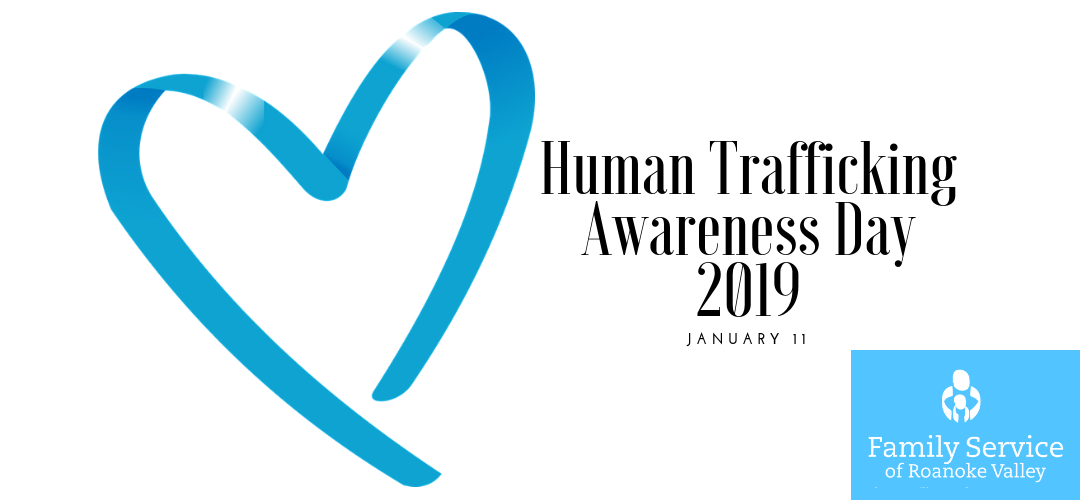You may or may not know today is Human Trafficking Awareness Day.
You also may not know the answer to my blog title.
Yes. There is a direct link between a history of sexual abuse and human trafficking victims.
The one thing shared by 84 percent of survivors is a history of childhood sexual abuse (1).
That is where my internship in counseling at Family Service of Roanoke Valley and my full-time job as Program Coordinator at Street Ransom come together.
Does human trafficking affect our community?
Human trafficking respects no borders or boundaries. There is no link between survivors of trafficking and a specific place, age, race, or economic/social status. (Human trafficking is comprised of both labor and sex, but this post is focused on persons affected by sex trafficking.) There is this myth we tell ourselves that sex trafficking is an international issue, or if it is in our towns and cities, foreigners are responsible for it. Actually, trafficking within American borders by Americans is a major issue.
Street Ransom is associated with Straight Street Roanoke Valley. Street Ransom is committed to bringing the issue of local sex trafficking to the attention of the public and equipping youth with the knowledge to avoid being lured into dangerous relationships.
A history of sexual abuse is one of the factors that could put someone at risk of being lured into one of these dangerous relationships.
At Family Service, children who have experienced sexual abuse have access to age appropriate counseling and case management services–specifically through our partnership with Virginia Department of Social Services and Victims of Crime Act funding. Adult survivors of childhood sexual abuse also receive long-term therapeutic solutions to overcome the trauma they experienced.
When any kind of abuse or trauma goes unaddressed, it creates vulnerabilities. Especially when it comes to sexual abuse. The guilt, shame, and confusion created can be easily exploited by traffickers and those with ill intent. The connection between a history of sexual abuse and sex trafficking becomes more clear when you understand the “grooming” process.
What is grooming?
Grooming is simple, yet effective. A trafficker identifies or creates a need the potential victim has, such as the need to be loved by a father figure, to be accepted, to have stability, to be wanted, to escape reality, to have protection, etc. Then, the trafficker isolates the victim until the trafficker is the only person who can fill the victim’s needs.
The trafficker exploits this dependence, and someone who is already vulnerable because of untreated trauma from past experiences is once again victimized.
The emotional and psychological vulnerabilities of unaddressed childhood sexual abuse combined with the natural “honeymoon period” (limerence) that occurs when you meet a new person can create a dangerous situation (2). Traffickers have been termed as the “masters of psychology” because they can identify a vulnerability from miles away. Each trafficker has a different recruitment method to deploy in correlation to a vulnerability.
- to exploit the need for love and value, the trafficker may become the victim’s boyfriend/girlfriend.
- to exploit the need to feel accepted and included, the trafficker may become the best friend or roommate.
- to exploit children in the foster care system and a need to feel wanted, the trafficker may become family figure
- to exploit the desire to escape from reality, the trafficker may introduce drugs and create a dependency.
Traffickers have a plan of manipulation to exploit any need they encounter because it is their full-time job and where all their time and attention goes.
What is the answer?
Issues as complex as human trafficking have no easy solution. That is why I am grateful we recognize Human Trafficking Awareness Day to shed light on this devastating issue, and let people know it does in fact affect our community and our neighbors.
There are people in this world waiting to take advantage of others, especially those who are already vulnerable and traumatized. I want you to know that there are also helpers and mental health professionals waiting to share tools and space to process trauma and heal old wounds.
There is hope for those who have been through sexual abuse. If you or someone you know has experienced sexual abuse, it is vital to process the trauma and begin to truly heal by learning how to identify and choose good for yourself. You (and anyone who has experienced sexual abuse) are more resilient than you know. You can face what you’ve been through, and come through stronger, happier and healthier.
I strongly encourage anyone who has encountered sexual abuse to seek counseling through a mental health professional.
To schedule an appointment at Family Service, please call 540-795-4653.
References:
(1) Raphael, J., & Feifer, K. (2017, February). What we know about sex trafficking, prostitution, and sexual exploitation in the U.S. World Without Exploitation.
(2) Tennov, D. (1989). Love and limerence. Chelsea Michigan: Scarborough House.


